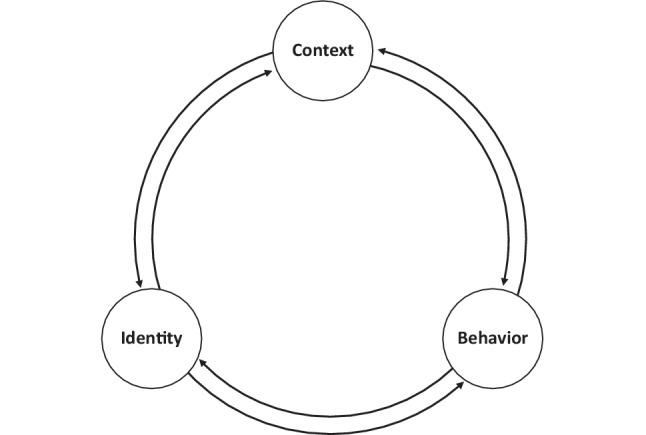Fig. 1.

Schematic of the bidirectional influence between identity, behavior, and context, adapted from Bandura’s Social Cognitive Theory. Bandura’s “reciprocal determinism” described that behavior, personal factors, and environmental influences operated interactively as determinants of one another. We have adapted this model, focusing on “identity” as a summarization of “personal factors” to represent the process of professional identity formation during residency as a complex, dynamic bidirectional interaction between identity, behavior, and context
